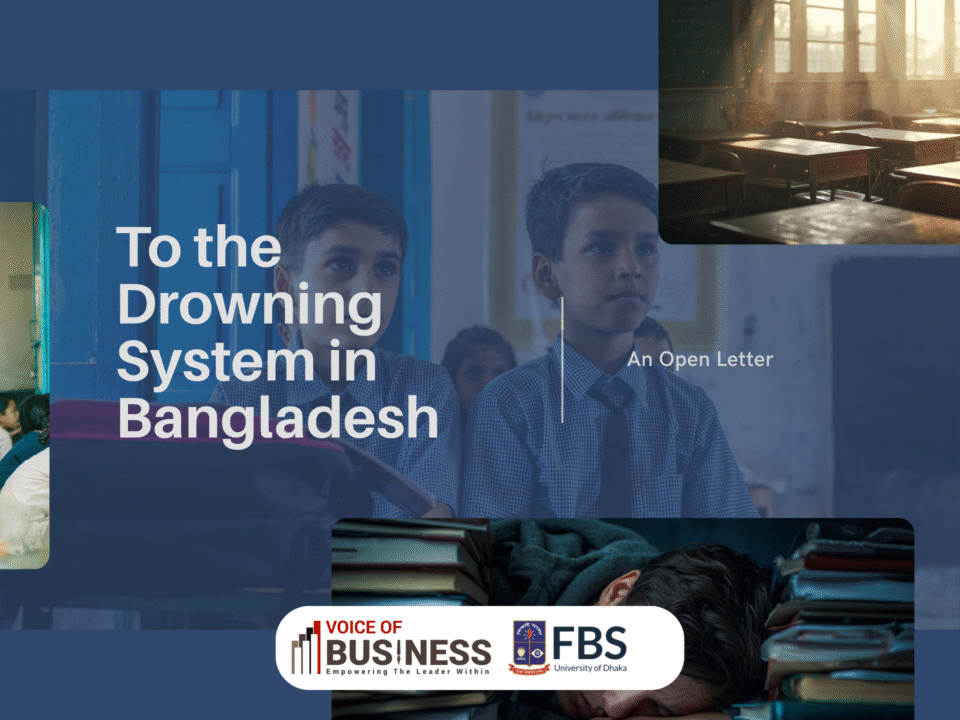The Singing Robins of The Sundarbans

Artistic Alchemy in Society: An elixir or a toxin?
June 3, 2025Animation: an artistic exploration of expression
June 3, 2025“You’re new here, aren’t you?” Said Ayesha Banu as she adjusted the throttle of the trawler with her strong, experienced hands, despite being in a wheelchair.
“What gave it away?” I smirked and asked.
“Oh! You reporters and your frail articles – sitting forsaken, ignored at the bottom of the page. Write about films, and celebrities – you’ll get your break.”
The trawler was running at a steady speed through the Arpangasia (আড়পাঙ্গাশিয়া) river, deep into the forests of Sundarbans, terrifyingly close to the Bay of Bengal.
I asked her, “Why are all of your crewmates in the trawler women?”
Ayesha Banu, staring off into the clouds, said, “They are the strongest survivors you’ll ever come across.”
“At least give me your tale if you won’t talk about Bonobibi. I’ve been in the water for the past two days, and I need to give my boss something.” With a desperate expression, I said.
There was something about Ayesha Banu that was beyond my comprehension. Was it an aura or a peculiar sense of energy? I couldn’t figure it out.
Ayesha Banu abruptly looked me in the eyes and said, “Here’s my story. Whether you believe it or not is up to you.”
She then took a deep breath and started speaking.
“I was born into a family of fishermen; I learned to fish at the age of five. During my early years of childhood, there lived a lady in my village who used to sing around and beg for food. We called her “Khuki Ma (খুকি মা)”. She mostly sang songs about the mysterious deity named “Bonobibi”, who was believed to save us from the monsters in the jungle.”
“Khuki Ma taught me how to sing and how to project my melody as a weapon to strike people’s consciousness. She used to say, “When you believe in Her, you ‘become’ Her!” (যে ভাবে, সে-ই হবে)”
I interrupted, “What does it mean?”
“To this day, even I don’t know. All I know is that I have faith.”
“What happened next?” I asked.
“She was, as they called her, the ‘untouchable’ one in the village. It was believed that everybody she came into contact with would get the curse of Bonobibi and die young. She was beaten to death by the villagers because she held the hands of a child to save him from drowning in the river.”
“How cruel!” I cried.
“Time drifted; everyone moved on and forgot about her, except me,” she said with a sigh. “At that time, I was practically thirty years old. I got well using my fishing abilities in a little cabin close to the forest; spending my days fishing and my evenings teaching young girls to sing. I fled at the age of sixteen when my parents forced me to marry an elderly trader to become his second wife.”
“Gradually, as my fish business expanded, I started sheltering the girls who survived underage marriages, domestic abuse, or sexual assaults. I refilled those traumatized little souls with self-confidence, taught them self-defence and healed their wounds with music. Some of them forged their own paths; some of them decided to stay with me and continue saving lives.”
Leaving me speechless, she continued, “We used to barge into unlawful child marriages happening in the locality with burning torches in our hands, loudly singing the infamous song written by Khuki Ma herself,
“পায়ে তাহার প্রণাম জানাই
সিন্নি করি ইন্তেজাম,
বনবিবির কইন্যা মোরা
কেমনে দিবি মোদের দাম?
বনের দানব ছোঁয় না আমায়
বন-পিরানীরে পায় সে ভয়,
তোর মনে যে দানব থাকে
সেও তো বিবির অজানা নয়!
বনের দানব, মনের দানব
আজকে কারো রেহাই নাই
বনবিবির কইন্যা মোরা
নিজের মত বাঁচতে চাই।”
Before long, influential individuals started taking action against us. Instead of stopping underage marriages, they saw us as a threat to society. We were given multiple warnings to dissociate and return to our families. Observing our solidarity even after repeated warnings, they intended to attack us.”
“On one fateful night, when I was asleep, I caught a smell of burning straws. My eyes opened to the sight of our hut on fire. I realized that some of the local goons were hired to do this. They were outside waiting for us to come out. I looked around and saw everyone panicking because of the signs of imminent death.”
“Have faith, daughters of the forest!” I exclaimed. However, they were too preoccupied with the encroaching fire to focus on what I was saying. I took a deep breath and started singing,
“শিশু ‘দুখে’ ভয়ে কাঁদে
শাহ জঙ্গুলি তোমার সাথে
ভয় কি আর থাকিবে কাছে
বিবির চক্ষু যেথায় আছে
আগুন দগ্ধ করতে নারে
বজ্র সেলাম ঠুকে যারে
পাহাড় নত যাহার পায়ে
বিবির নামে বাইলাম নায়ে”
To clear a path for the girls to leave the house, I began to identify the fire with the little water we had. All of a sudden, I could hear others joining in on the song; helping me to distinguish the fire. With everything we had, we bravely faced the thugs. We still couldn’t compete with those brutes. And suddenly everyone present froze at that very time!”
“What happened?”
“We recognized a familiar sound. Two or more tigers were howling close by. One of the goons noticed that the tigers were ravenous for food. I motioned for my girls to board the boat right away. The tigers charged only the goons as soon as they arrived on the scene.”
“We eventually became a local legend in all the villages—the singing robins of the Sundarbans, protected by Bonobibi, always there to halt illegal events and humiliate the perpetrators.”
I murmured, “Why did the tigers come out there at that exact moment and target just the goons?”
Ayesha Banu smiled mysteriously and said, “I don’t have the answers, Ms. Farhana. All I have is full faith in the art of Khuki Ma. In the darkest moments, faith is the silent whisper that assures you dawn will come again.”
Author: Nandito Banik




